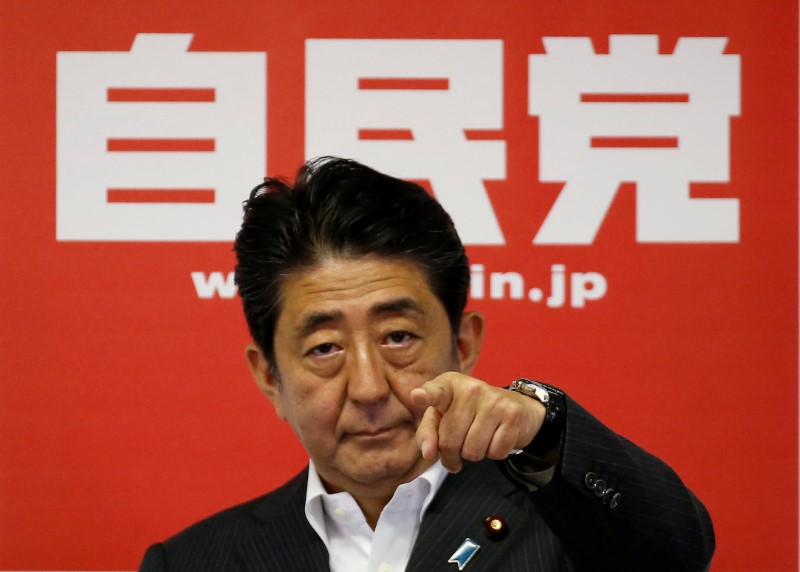TOKYO (Reuters) - Private-sector members of the Japanese government's top advisory council said a fiscal discipline target for 2018 should not lead to excessive spending cuts as they opened the door to new debt issuance to fund stimulus.
The proposal comes after Prime Minister Shinzo Abe laid out plans for "bold" spending on infrastructure this fiscal year, raising concerns the public debt burden would worsen as the government shifts its focus to expansionary fiscal policy.
"Hitting the government's (fiscal discipline) goals is extremely difficult," said Shuji Tonouchi, senior market economist at Mitsubishi UFJ Morgan Stanley (NYSE:MS) Securities.
"The upcoming supplementary budget and economic stimulus are expected to be quite large. It might temporarily push up growth, but (the economy) might run out of breath in fiscal year 2017."
The private-sector members of the Council on Economic and Fiscal Policy, which met earlier on Wednesday, are academics and business leaders who are considered close to Abe.
Their proposals often form the kernel of policy that Abe's government eventually adopts.
At the meeting, the private-sector members also called for more spending on childcare, care for the elderly and structural reforms to accelerate growth.
Abe's government has set two important fiscal discipline targets; the first is to lower the primary budget deficit to 1 percent of gross domestic product in fiscal 2018, and the second is returning to a primary budget surplus in fiscal 2020.
The government should take steps to make sure the fiscal 2018 target does not "curb spending excessively" private-sector members said in their proposal.
The proposal reaffirmed the government's plan to return to a primary budget surplus in fiscal 2020, but it also said the government should not be bound by past commitments to avoid selling new debt to fund stimulus and should consider using cash reserves.
Japan's debt-GDP ratio is the world's worst, standing at more than twice the size of the $5-trillion economy.
Fitch Ratings has already threatened to downgrade Japan last month after Abe delayed an increase in the nationwide sales tax.

More fiscal stimulus spending could fuel further concerns about the country's debt burden and its sovereign rating.